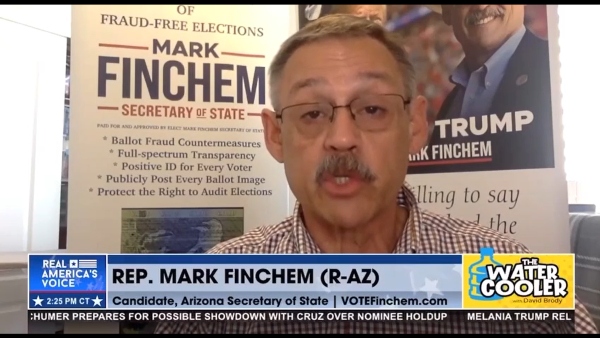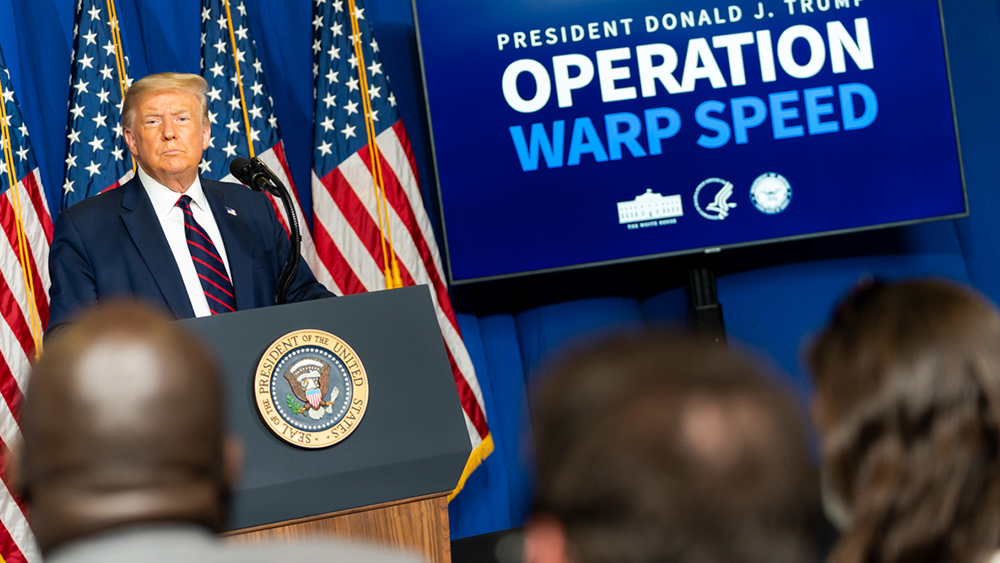 Parler
Parler Gab
Gab
In keeping with that premise, this Court must apply “all reasonable presumptions” in “favor [of] the validity of an election.” Moore v. City of Page, 148 Ariz. 151, 155 (Ct. App. 1986). “[H]onest mistakes or mere omissions on the part of election officers, or irregularities in directory matters, even though gross, if not fraudulent, will not void an election, unless they affect the result, or at least render it uncertain.” Findley v. Sorenson, 35 Ariz. 265, 269 (1929).The court seems to rely on the idea that Finchem’s team must prove fraud in their pleadings to move past a motion to dismiss. That is absolutely absurd. You see, when a case begins a Plaintiff files a complaint. A complaint is a document that lays out the claim. According to Rule 8 of the Arizona Rules of Civil Procedure:
(a) Claim for Relief. A pleading that states a claim for relief must contain: (1) a short and plain statement of the grounds for the court's jurisdiction, unless the court already has jurisdiction and the claim needs no new jurisdictional support; (2) a short and plain statement of the claim showing that the pleader is entitled to relief; and (3) a demand for the relief sought, which may include relief in the alternative or different types of relief.The pleading should also be:
(e) Pleading to Be Concise and Direct; Alternative Statements; Inconsistency. (1) Generally. Each allegation of a pleading must be simple, concise, and direct. No technical form is required.This is a great over-simplification and there is a lot more that goes into a good complaint but generally the complaint simply lays out an overview of what is meant to be fought out at trial. It is meant to be concise and needs only to be plausible to move forward if it meets the other standards. The paragraph referenced above in the dismissal indicates the judge is suggesting that fraud must be demonstrated in the complaint. The problem is that the cases cited have been overruled by statute. In 2020 Arizona passed a number of laws related to election reform. The relevant statute is AZ Rev Stat § 16-672 which states in relevant part:
A. Any elector of the state may contest the election of any person declared elected to a state office, or declared nominated to a state office at a primary election, or the declared result of an initiated or referred measure, or a proposal to amend the Constitution of Arizona, or other question or proposal submitted to vote of the people, upon any of the following grounds: 1. For misconduct on the part of election boards or any members thereof in any of the counties of the state, or on the part of any officer making or participating in a canvass for a state election. 2. That the person whose right to the office is contested was not at the time of the election eligible to the office. 3. That the person whose right is contested, or any person acting for him, has given to an elector, inspector, judge or clerk of election, a bribe or reward, or has offered such bribe or reward for the purpose of procuring his election, or has committed any other offense against the elective franchise. 4. On account of illegal votes. 5. That by reason of erroneous count of votes the person declared elected or the initiative or referred measure, or proposal to amend the constitution, or other question or proposal submitted, which has been declared carried, did not in fact receive the highest number of votes for the office or a sufficient number of votes to carry the measure, amendment, question or proposal. B. The contest may be brought in the superior court of the county in which the person contesting resides or in the superior court of Maricopa County.The cases the Judge cited were published in 1986 and 1929. When a law is passed subsequent to a case ruling like those, it overturns those rulings if it they are in dispute. Further, when determining the meaning of legislation, you begin with the plain language of the text. In this case, the plain language of the text makes it clear that “Any elector” can challenge an election for the reasons listed. Nowhere in this statute is anything close to an indication that the legislature intended for this to apply only if fraud were shown. Rather, it is quite clear by the plain language of the statute that standing to challenge election outcomes was meant to be broadly construed. Standing is quite literally conveyed if any of the five grounds are alleged, and I simply do not see how any legitimate jurist can argue otherwise in good faith. This leads me to the second major issue I have with the ruling. When a motion to dismiss prior to discovery (which is the part of the case where evidence is gathered and exchanged) is considered, all evidence presented must be viewed as true if well-pled. In fact, the Court actually states:
This court can and should assess the validity of Mr. Finchem’s election contest under Rules 8 and 12(b)(6). In so doing, this Court will “assume the truth of the well-pled factual allegations and indulge all reasonable inferences therefrom.” Cullen v. Auto-Owners Ins. Co., 218 Ariz. 417, 419, ¶ 7 (2008). Under Rule 12(b)(6), a motion to dismiss for failure to state a claim is properly granted if the plaintiff is not entitled to relief as a matter of law “under any interpretation of the facts susceptible of proof.” Coleman v. City of Mesa, 230 Ariz. 352, 356, ¶ 8 (2012) (quoting Fid. Sec. Life Ins. Co. v. State Dep’t of Ins., 191 Ariz. 222, 224, ¶ 4 (1998)). Exhibits to the verified statement, or public records, are not outside the pleading and courts may consider such documents without converting a motion to dismiss into a motion for summary judgment. Id. at 356, ¶ 9.From there, the Court makes factual and legal determinations, one after another, and then claims that, because of those determinations, Rules 8 and 12(b)(6) dictate the Court should dismiss. For example, where the Court refers discusses the alleged illegal votes it cites the Moore and Hunt cases again instead of looking to the governing language of the statute which controls. The Court apparently also has no issues with possible violation of campaign finance laws as well as what could constitute a RICO and conspiracy charge by an elected official using their office to push or collude with a private company to block advertising by a political opponent in a race, she was running in. To suggest the actions alleged were not misconduct leaves me to wonder what would have been done to meet that standard. I will not pain you with the absolute garbage the Court attempts to use to explain away what I simply cannot fathom being anything but misconduct. Throughout there is continued reference to the standards laid out in the previously mentioned cases that were overruled by statute but why let the law get in the way of the desired outcome. In each of these absurd decisions about the application of the facts alleged to the law regarding misconduct (which should not have occurred until trial - AFTER discovery) the Court applies the wrong legal standard. The proper standard according to the statute is “misconduct” not “gross misconduct.” Pursuant to Ariz. Indep. Redistricting Comm'n v. Brewer, 229 Ariz. 347:
Misconduct in office consists of a public officer's corrupt violation of assigned duties by malfeasance, misfeasance, or nonfeasance. Bryan A. Garner, A Dictionary of Modern Legal Usage 564 (2d ed. 1995); see also Black's Law Dictionary 1089 (9th ed. 2009) (defining "official misconduct" and recognizing it is also termed "misconduct in office"). "Malfeasance is doing that which [an] officer has no authority to do, and is positively wrong or unlawful." Holmes, 57 Ariz. at 540, 115 P.2d at 783. "Misfeasance . . . is doing in a wrongful manner that which law authorizes or requires [an officer] to do." Id. Nonfeasance is synonymous with neglect of duty, defined above. Id. Gross misconduct is different in kind as well as degree, requiring a knowing and willful violation of a legal duty. See, e.g., Jones, 106 P.3d at 25-26, 28; John v. John, 153 Wis. 2d 343, 450 N.W.2d 795, 801-02 (Wis. App. 1989); Geeslin v. McElhenney, 788 S.W.2d 683, 685 (Tex. App. 1990); cf. In re Zawada, 208 Ariz. at 234 ¶ 4, 237 ¶¶ 15, 17, 239 ¶ 25, 92 P.3d at 864, 867, 869 (finding a prosecutor's appeals to the jury's fear; disrespect for, prejudice against, and harassment of expert witnesses; and improper arguments were knowing, deliberate, and "clearly gross misconduct"); Scott v. Scott, 75 Ariz. 116, 122, 252 P.2d 571, 575 (1953) (gross or wanton negligence "is highly potent, . . . flagrant and evinces a lawless and destructive spirit"). Thus, gross misconduct requires a willful act or omission that the commissioner knew or should have known was wrong or unlawful.There is quite clearly a case to be made that malfeasance, misfeasance, and nonfeasance all occurred in this election and that case should be argued at TRIAL - AFTER full discovery of ALL relevant facts. As a last point of contention (though I have many more), I think the application of laches is absurd. Laches is a defense raised by a party to a lawsuit that claims an unreasonable delay in prosecuting a case is causing prejudice to their position. Here, the Court seems to think Finchem should have sued over the issues with the voting machine certification prior to the election - maybe even in 2015 when he wasn’t running for the office. Outside of the general absurdity of this argument, there is an underlying legal problem, Finchem had no standing to do so until he was injured. The Court would have thrown this out prior to the election for standing and is suggesting laches works after. This entire section is filled with nonsensical arguments and errors, but it seems to boil down to the Court simply does not want to hear the case. As I said, I could write a book on this but ultimately this ruling was a disaster and should be appealed. This appears to be a case of a court that wanted to find a way to get to the ruling it was looking for rather than to apply the facts to the law. The continual move in the courts to dodge tough cases by throwing them out prior to discovery is only going to serve to damage the public trust in the judicial system and is something we MUST avoid. What happened in Arizona and particularly in Maricopa County during the 2022 election was indisputably unacceptable. The real question is, was it intentional and/or did it rise to the level of misconduct or violate some other aspect of the law. The legislature has spoken and did not require fraud be proven in a complaint for a case to move forward. The rules of civil procedure, applicable case law, and common sense all dictate that this case should have moved ahead. Frankly, if the people alleged to have done wrong in this case truly did not do anything nefarious then I would think they would want a full and transparent investigation of what occurred by in independent court so they could demonstrate once and for all that the “election deniers” are crazy… unless they do have something to hide. I look forward to the appeal and hope the judge in the Lake case actually pays attention to the law. If not, the courts will have essentially abdicated their role in determining any election cases which will only serve to damage public trust in the judicial system and leave questions about the legitimacy of elections. Read more at: TomRenz.Substack.com
By News Editors // Share
Governments continue to obscure COVID-19 vaccine data amid rising concerns over excess deaths
By patricklewis // Share
Tech giant Microsoft backs EXTINCTION with its support of carbon capture programs
By ramontomeydw // Share
Germany to resume arms exports to Israel despite repeated ceasefire violations
By isabelle // Share










